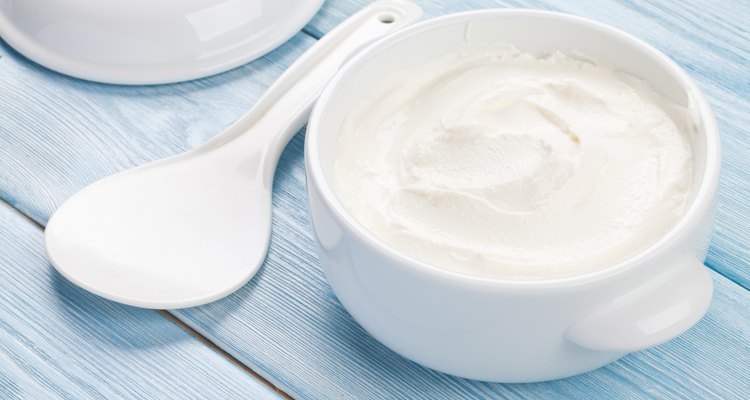
karandaev/iStock/Getty Images
Low-fat yogurt is a fermented dairy product made typically from cow's milk. This healthy, nutrient-rich food can be consumed plain or unflavored, used in recipes or as a condiment. If you do not have low-fat yogurt on hand or want to try a non-dairy option, suitable substitutes may offer a similar texture and/or flavor.
Light Sour Cream
Light sour cream, like yogurt, is a fermented dairy product made from cream instead of cow's milk. Even light varieties contain more fat than low-fat yogurt. It offers a similar, though perhaps thicker, consistency and contains bacterial cultures, which give it a slightly sour flavor. Commercially prepared light sour creams may contain other ingredients, such as flavoring agents, salt, vegetable enzymes and gelatin, for example. Per 100-g portion, compared to low-fat yogurt, light sour cream offers 73 more calories, 9 g more of total fat, 5.6 g of additional saturated fat, 29 mg more cholesterol and the same amount of carbohydrates, protein and sodium. Per 100-g serving, light sour cream is slightly lower in calcium but higher in vitamin A.
Light Créme Fraîche
Créme fraîche is very popular in French cuisine and is a staple there found in the supermarkets in containers alongside the yogurt products. It is a high-fat, thick sour cream-like product that is ideal for making cream sauces, because it does not curdle when heated like yogurt, according to The Cook's Thesaurus. Another use for this yogurt substitute is as a dessert topping. Regular créme fraîche is too high in fat to be an appropriate substitute for low-fat yogurt, but you can find light varieties. A 100-g portion of 3 percent fat créme fraîche provides 77 calories, 3 g of protein, 3 g of fat and 9.5 g of carbohydrates. It has a similar nutrition profile to low-fat yogurt, though it is slightly lower in protein and slightly higher in carbohydrates.
Light Soy Yogurt
Light plain or unflavored soy yogurt makes an ideal vegan or non-dairy low-fat yogurt substitute, because it is made from soy milk with added yogurt bacteria. It has similar health benefits, as well as a comparable flavor, texture and consistency to cow's milk yogurt. Soy yogurt may be particularly beneficial as a low-fat yogurt substitute for individuals who cannot tolerate dairy products or have a dairy allergy. Soy yogurt, like traditional low-fat yogurt, is rich in calcium and vitamin D. A 100-g portion of plain soy yogurt provides 66 calories, 3 g of protein, 2 g of fat, 0 g of saturated fat and 10 g of carbohydrates. It is nearly equivalent in calories to low-fat yogurt, offers the same amount of fat, slightly more carbohydrates and, as a benefit, is cholesterol-free.
Related Articles

Different Types of Whipping Cream

Substitute for Light Cream in Cooking

Baking Substitutions for Ricotta Cheese

Calories in a Tablespoon of Cream Cheese

Is Allantoin a Relative of the Lanolin ...

Can You Substitute Mascarpone With ...

Sources of Calcium in Indian Food

Facts About Yoplait Yogurt
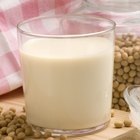
Is Soy Milk Casein-Free?
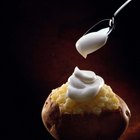
What Is "Cultured Cream"?

Difference Between Canned Pumpkin & ...

Low Fat Substitute for Mascarpone

Difference Between Yogurt & Curd

Substitute for Heavy Whipping Cream in ...

Greek Yogurt as a Replacement for Sour ...
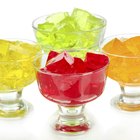
Fat-Free and Sugar-Free Jell-O Pudding ...

How to Make Natural Deodorant From ...

Almond Oil Cooking Substitution

Feta Cheese Nutrition
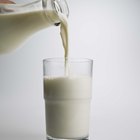
Whole Milk Vs. Lactaid Milk
References
- Difference Between.net: Difference Between Yogurt and Sour Cream
- Nourished Kitchen: 10 Cultured Dairy Foods and How to Use Them
- Nutrition Value: Sour Cream, Light
- Nutrition Value: Yogurt, Plain, Low Fat, 12 Grams Protein per 8 Ounce
- The Cook's Thesaurus: Cultured Milk Products
- Livestrong.com: MyPlate: President Light 3% Fat Creme Fraiche
Resources
Writer Bio
Michele Turcotte is a registered, licensed dietitian, and a certified personal trainer with the National Academy of Sports Medicine. She has more than 12 years of experience in clinical and corporate settings, and has extensive experience in one-on-one diet counseling and meal planning. She has written freelance food and nutrition articles for Trouve Publishing Inc. since 2004.
Photo Credits
karandaev/iStock/Getty Images